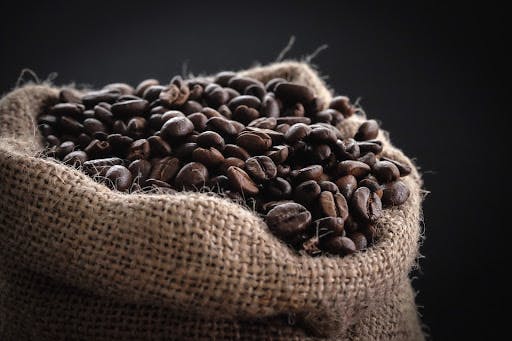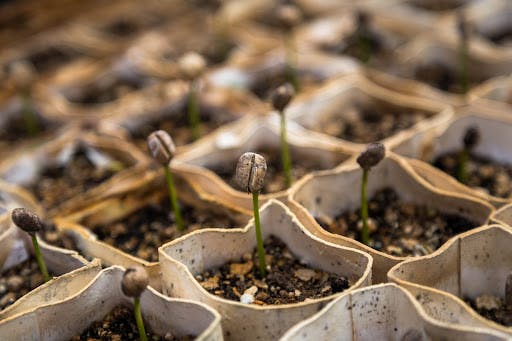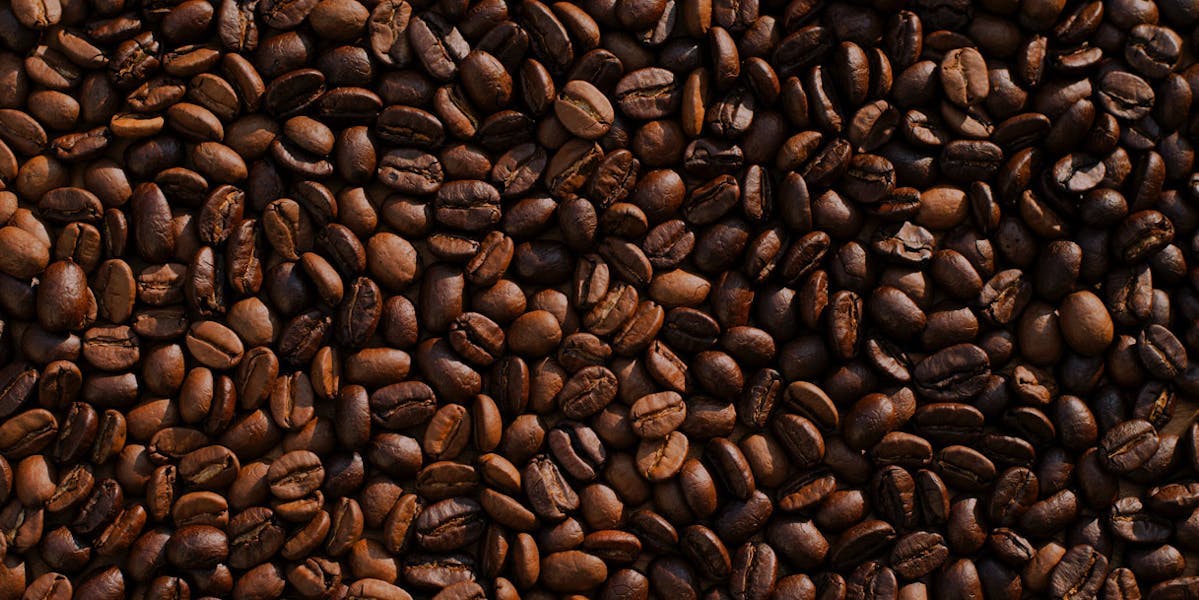Lifestyle
The Links Between Coffee and Climate Change
6min read
From the start of the day to perhaps an after-dinner drink, coffee has solidified its position in our everyday lives but with the climate changing, what impact will this have on the growth of our beloved drink?
What are the main coffee types?
Coffee production has seen a large increase in the past decade showing that we are loving it now more than ever.
Arabica and robusta coffee are the dominant species of coffee produced, with arabica making up 70% of all coffee grown and robusta contributing 30%.
Robusta typically offers a higher crop yield and higher caffeine levels compared to arabica, however, it is considered a worse plant for the environment - find out more about that here!

Where does coffee grow?
Arabica coffee is native to Ethiopia but is grown commercially in the Brazilian highlands, Central America and Colombia whereas Robusta originates along the Congo river basin and is grown on a large scale in Vietnam, West Africa and Indonesia.
What climate does coffee grow in?
Both arabica and robusta coffee can tolerate slightly different temperatures and rainfall patterns but are very sensitive to changes in their optimum conditions - aren’t we all though?
The optimal conditions for coffee plants are generally in the cool to warm tropical environments along the equator and in between the tropics. They love rich soil and like to be kept pest-free. As well as specific weather conditions, the plants can only grow in certain altitudes making the region they can thrive in quite limited.
Large changes between the seasons are also not favourable for the plant flowering and therefore production of the sought after coffee bean.

What impacts will climate change have on coffee production?
Deviations from coffee plants optimum conditions and cycles can cause a reduction in photosynthesis and also an increase in toxic fungi that can contaminate them.
Research - see here - has shown that due to the change in climate in the regions that coffee is grown, by the end of this century there could be up to a 59% decline in areas suitable to grow arabica, and further decline in robusta’s growth area if there is no intervention.
As temperatures change and rainfall patterns are disturbed, coffee plants will be forced into higher altitudes and smaller areas putting production at risk. This means coffee could become an increasingly valuable commodity.
The increase in pests and fungi can also affect not only the quantity of the bean produced but also the quality - high humidity can cause an increase in molds.

Who will be impacted by a decrease in coffee production?
Whilst it can’t be seen yet, as consumers we will see a difference in the coffee we buy in cafes and shops. Prices will start to increase and quality will deteriorate over time.
The high altitudes needed to grow the arabica plant means that the large majority of coffee growers come from small farms as large scale production would not be feasible in these conditions.
As coffee markets change, it will be these small farm owners that feel the impact the hardest. Coffee plants take up to five years to mature and produce beans, so moving farms to stay within suitable conditions is a huge risk for these growers.

What can be done to stop the impacts of climate change on coffee?
Extensive intervention is required to stop the impacts of climate change on coffee. Planting large trees to help shade the smaller coffee plants can help keep the area cooler and also mitigate the impact of fluctuating rainfall.
Large coffee sellers are starting initiatives to work with farmers to provide seeds, monitor production and develop different strategies for coffee growth (link).
There are lots of sustainable options to choose from that are Fairtrade and help farmers prepare for an uncertain future such as Cafe Direct and New Kings Coffee.
Without the lush, tropical environments that the coffee plant thrive in, it wouldn’t be possible to have our morning pick-me-ups so supporting climate-friendly brands not only starts our day off right but the future as well.
By Lizzie Dymond
Lizzie is part of our fantastic Customer Delight team, she has a passion for all things sustainable and can't get enough of our Protein Power Bowl. On her days off, you’ll find Lizzie nose-deep in a gripping fantasy book, dancing around her kitchen to Taylor Swift and baking chocolate cookies or taking in a show at the theatre.
Let us take care of dinner
We help to make eating more plants easy and delicious. Fancy letting us take care of dinner? Check out our delicious meals here.
Shop now
